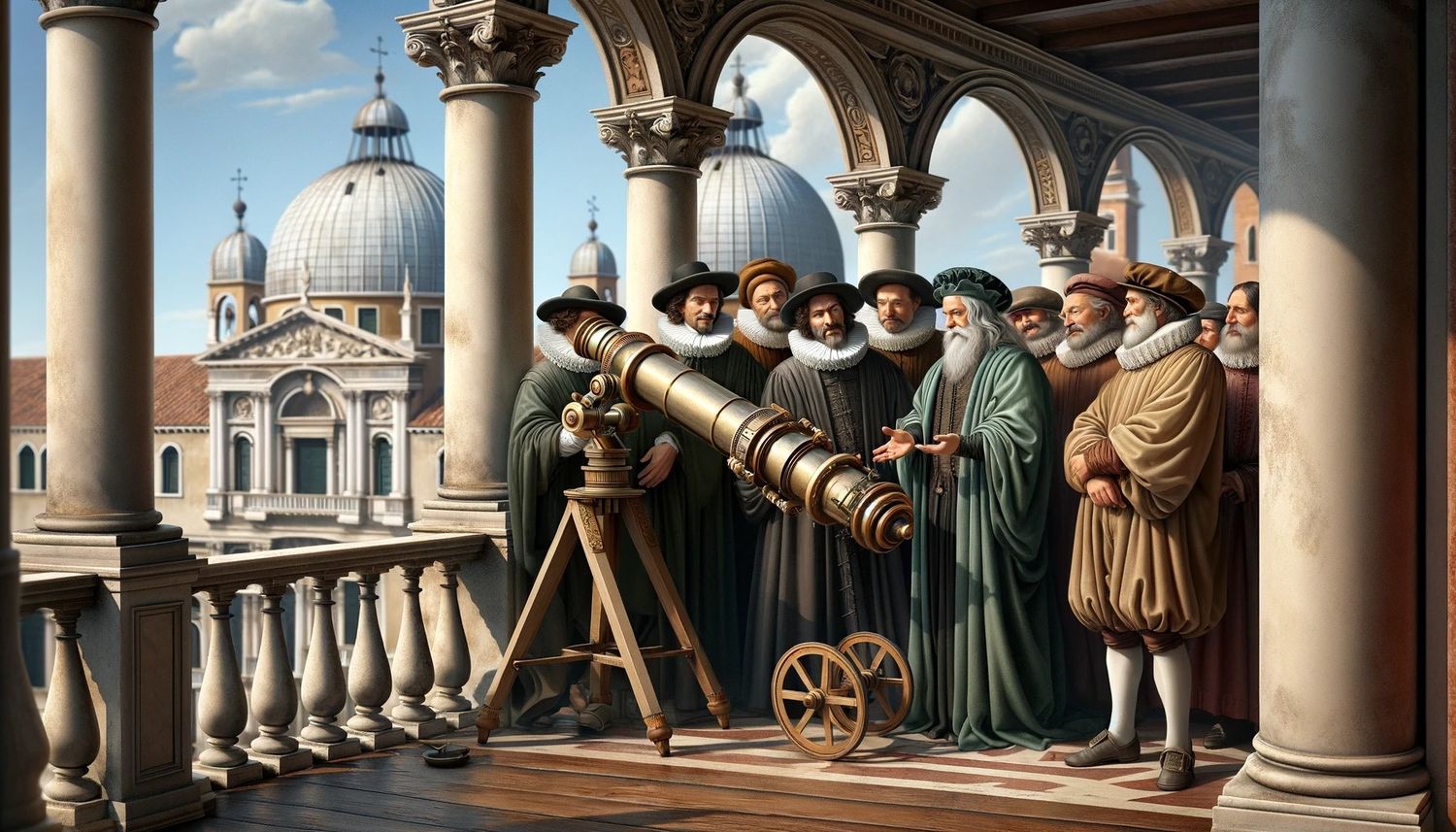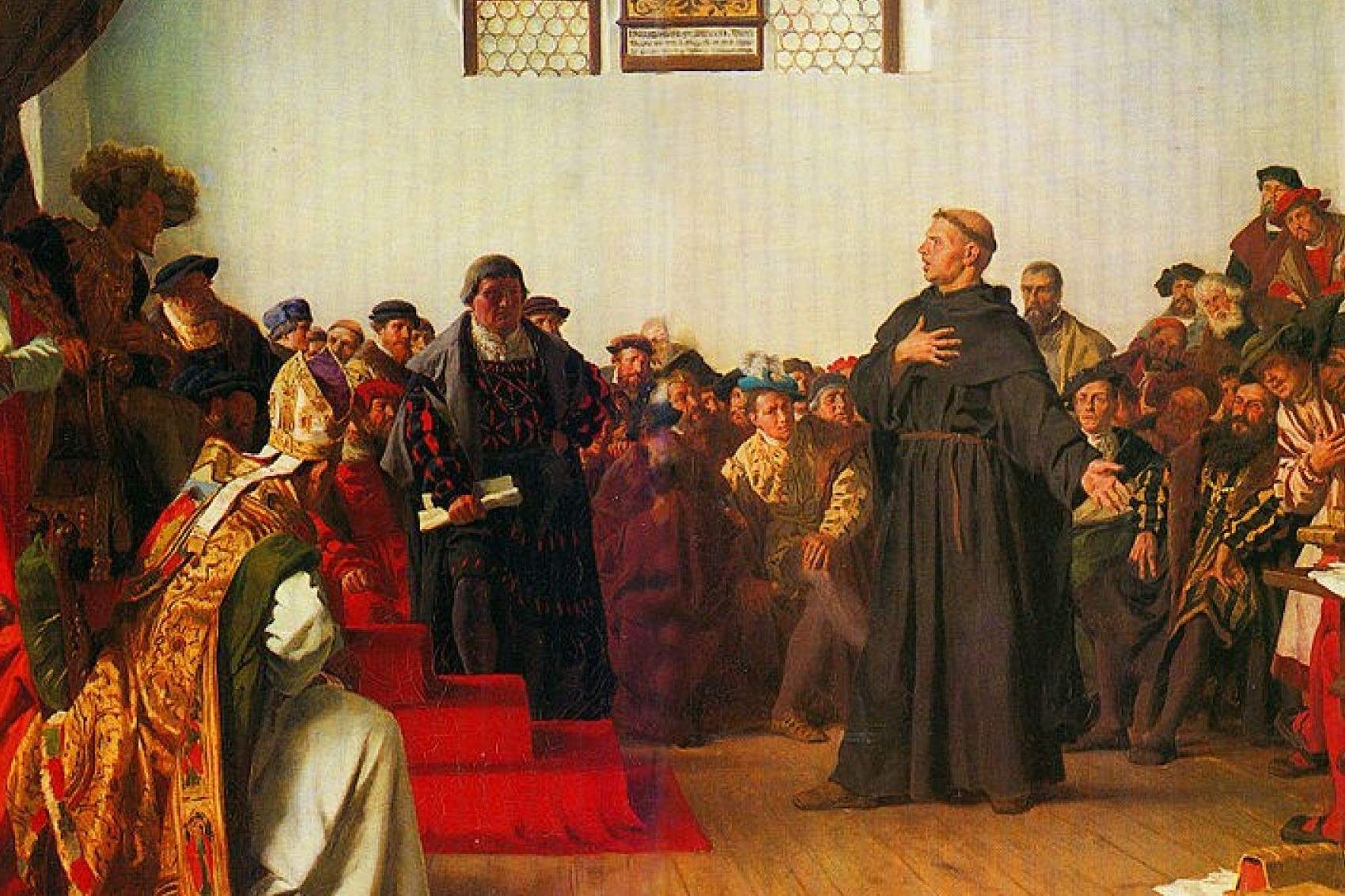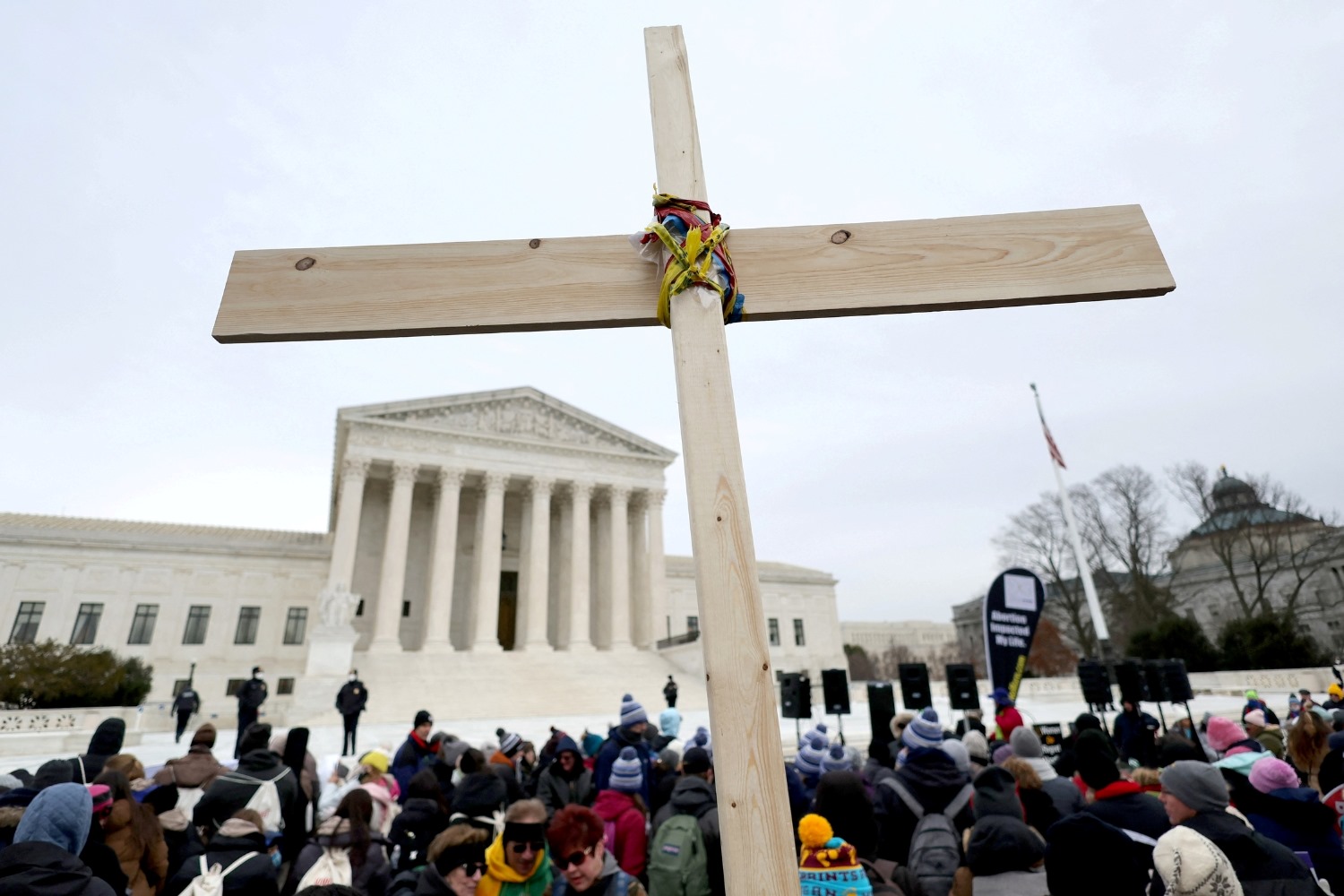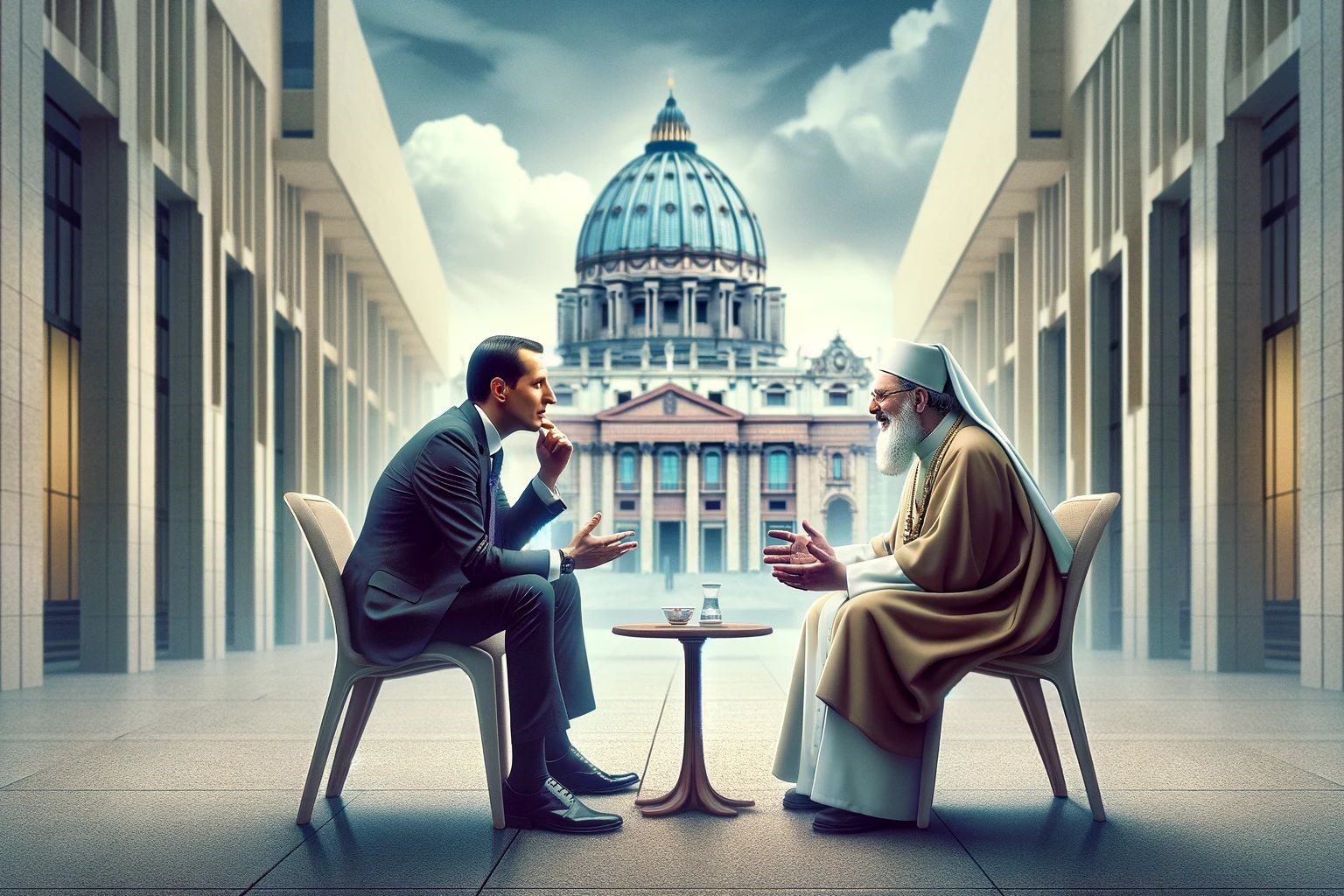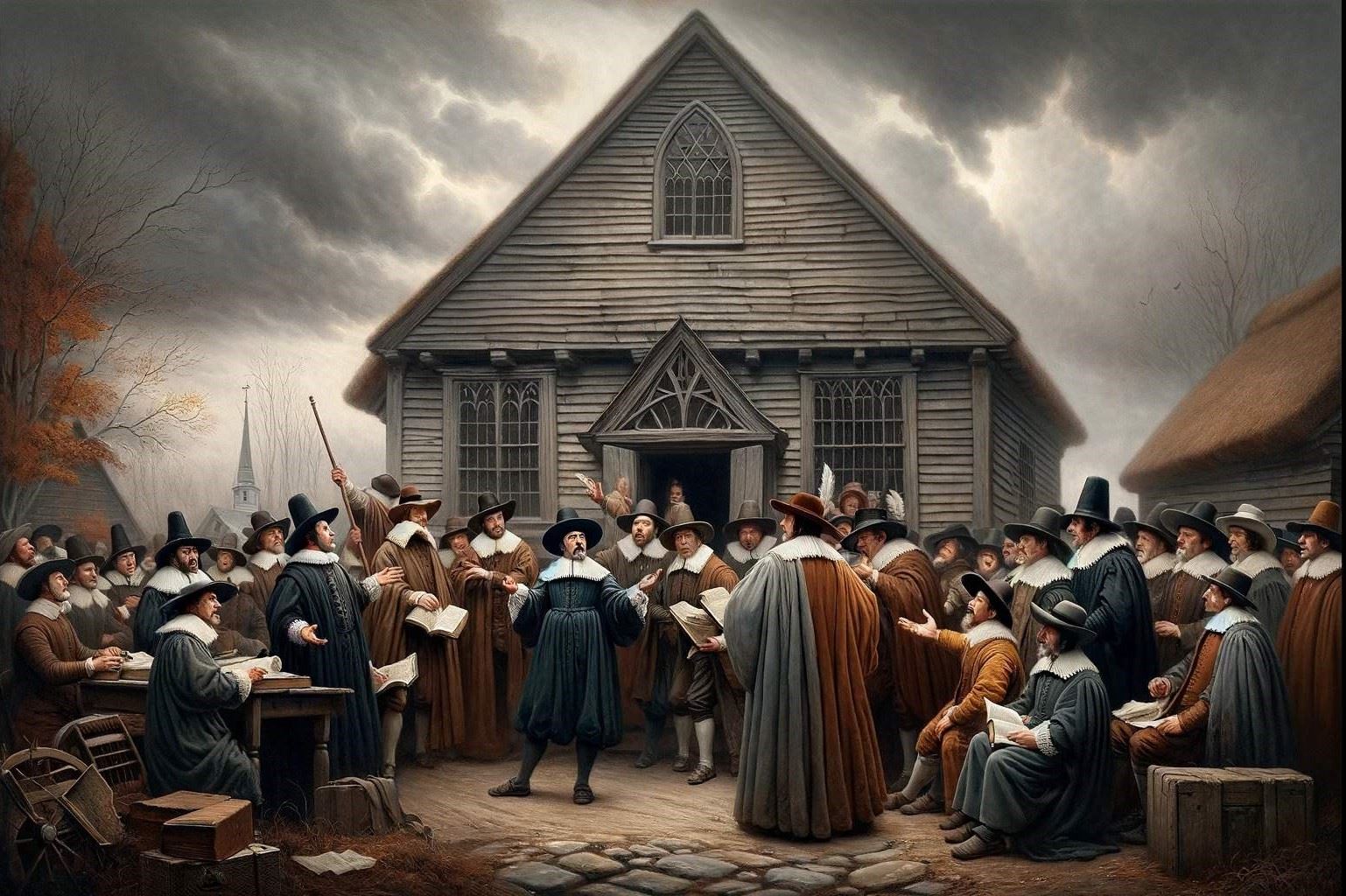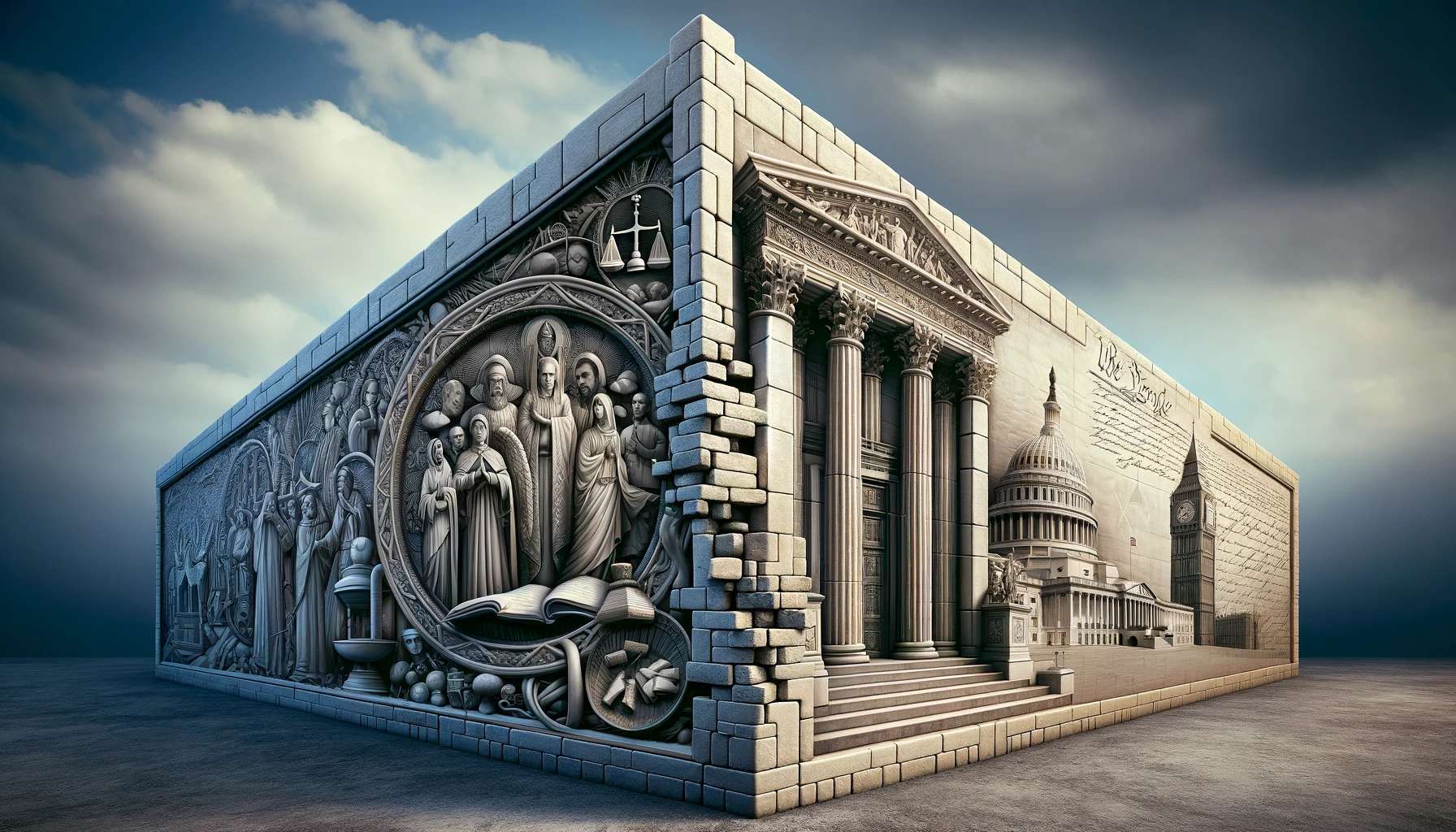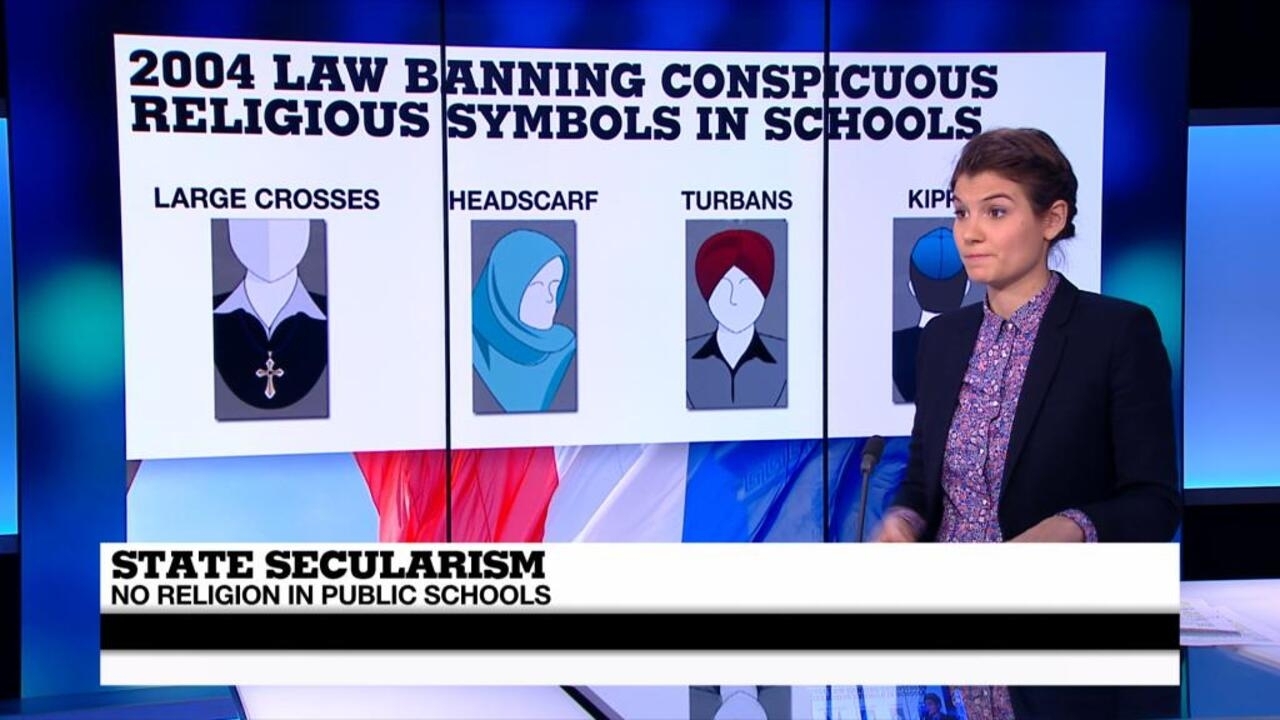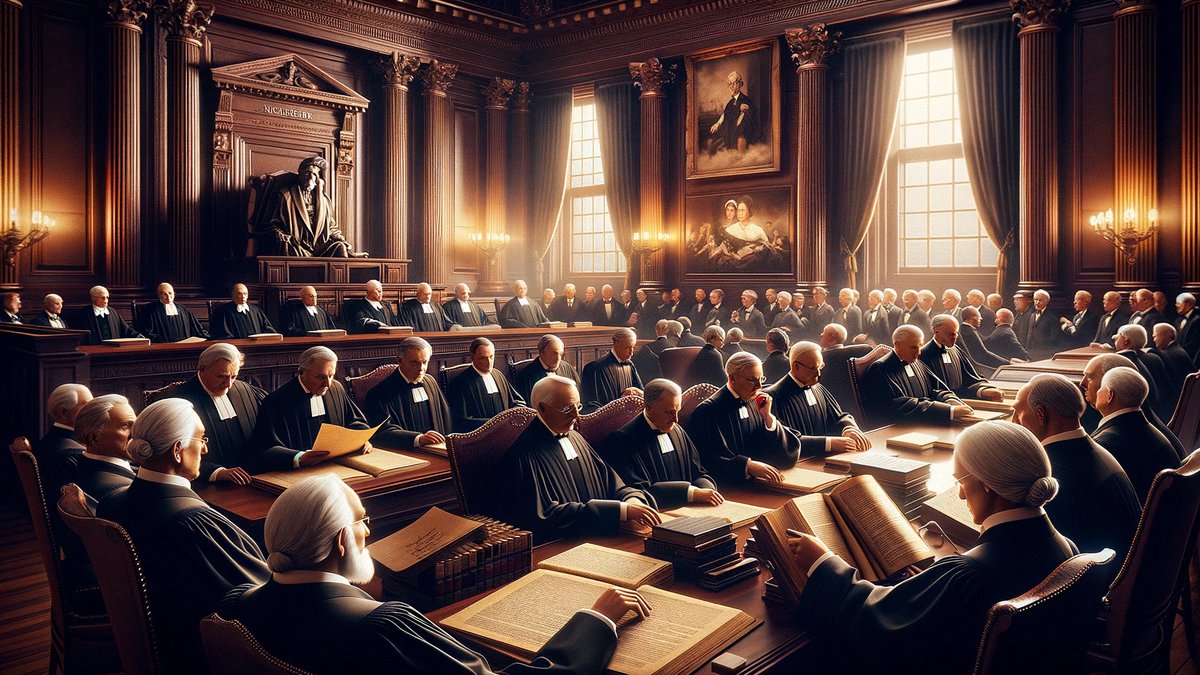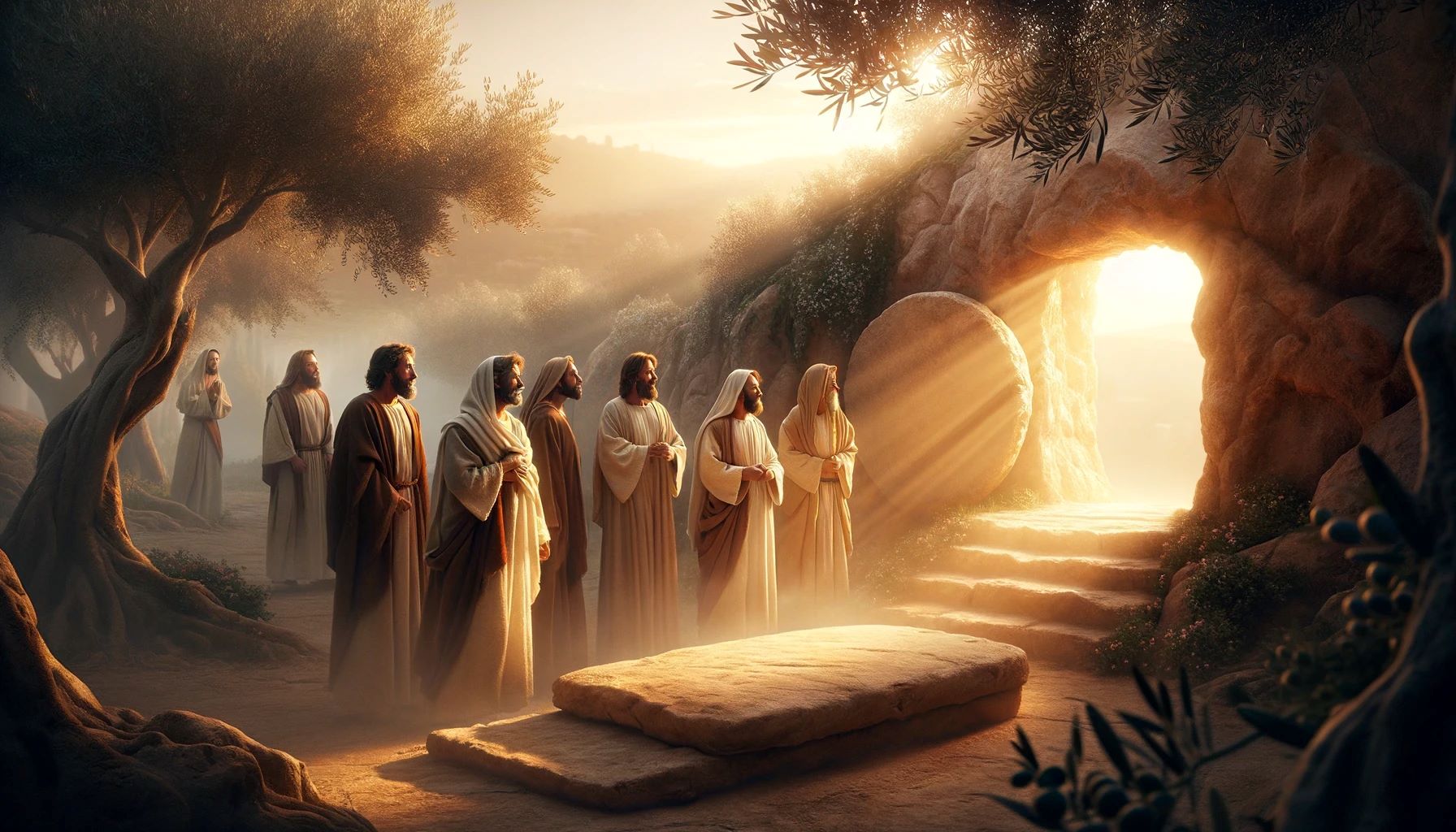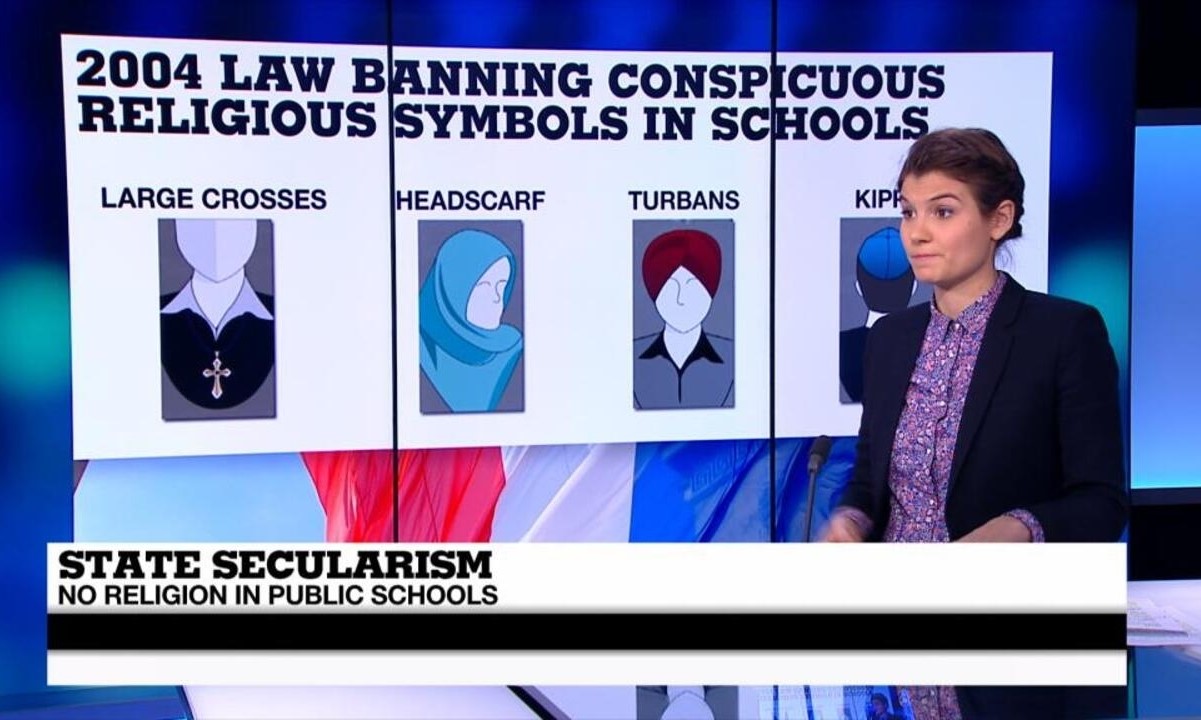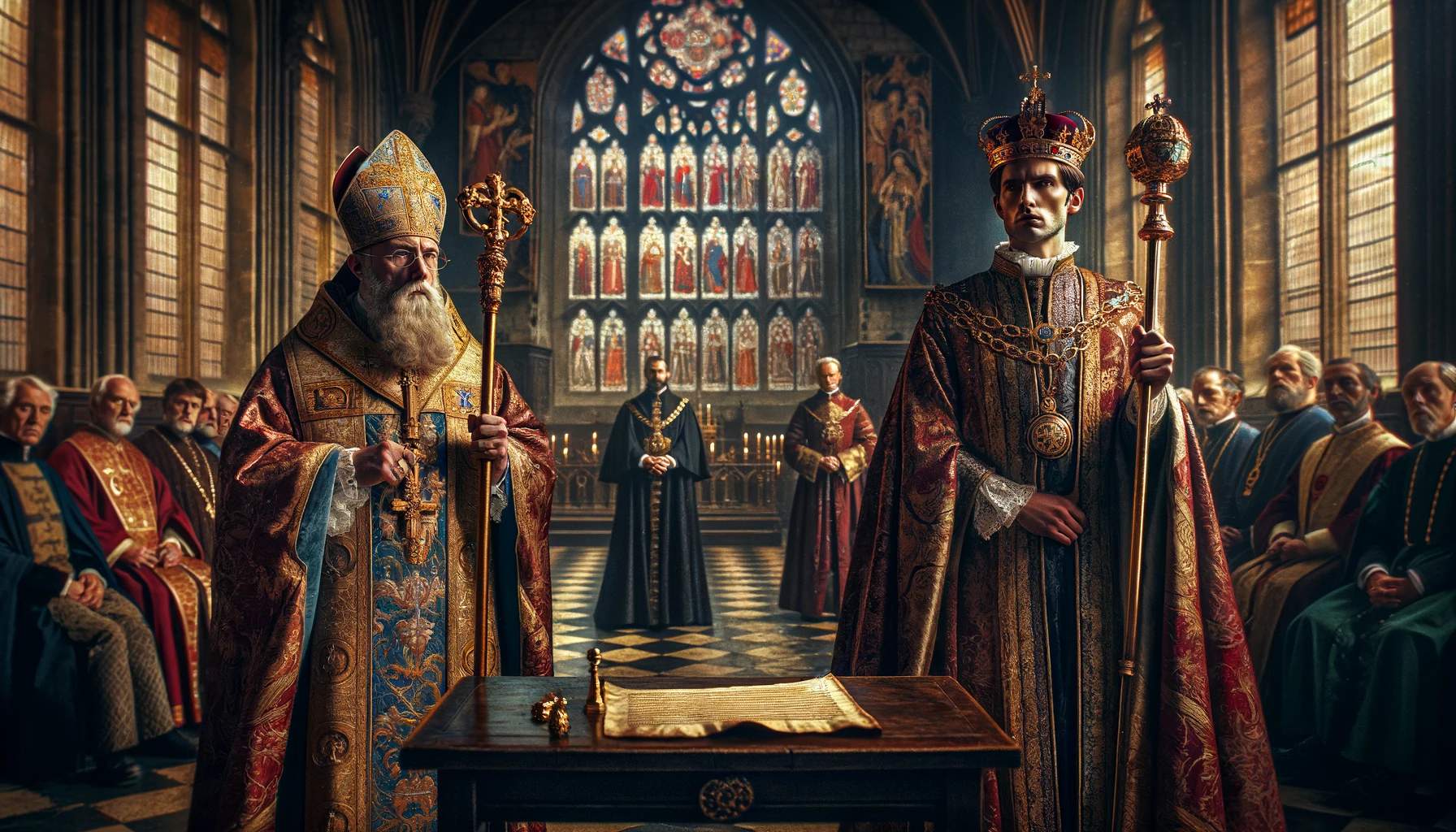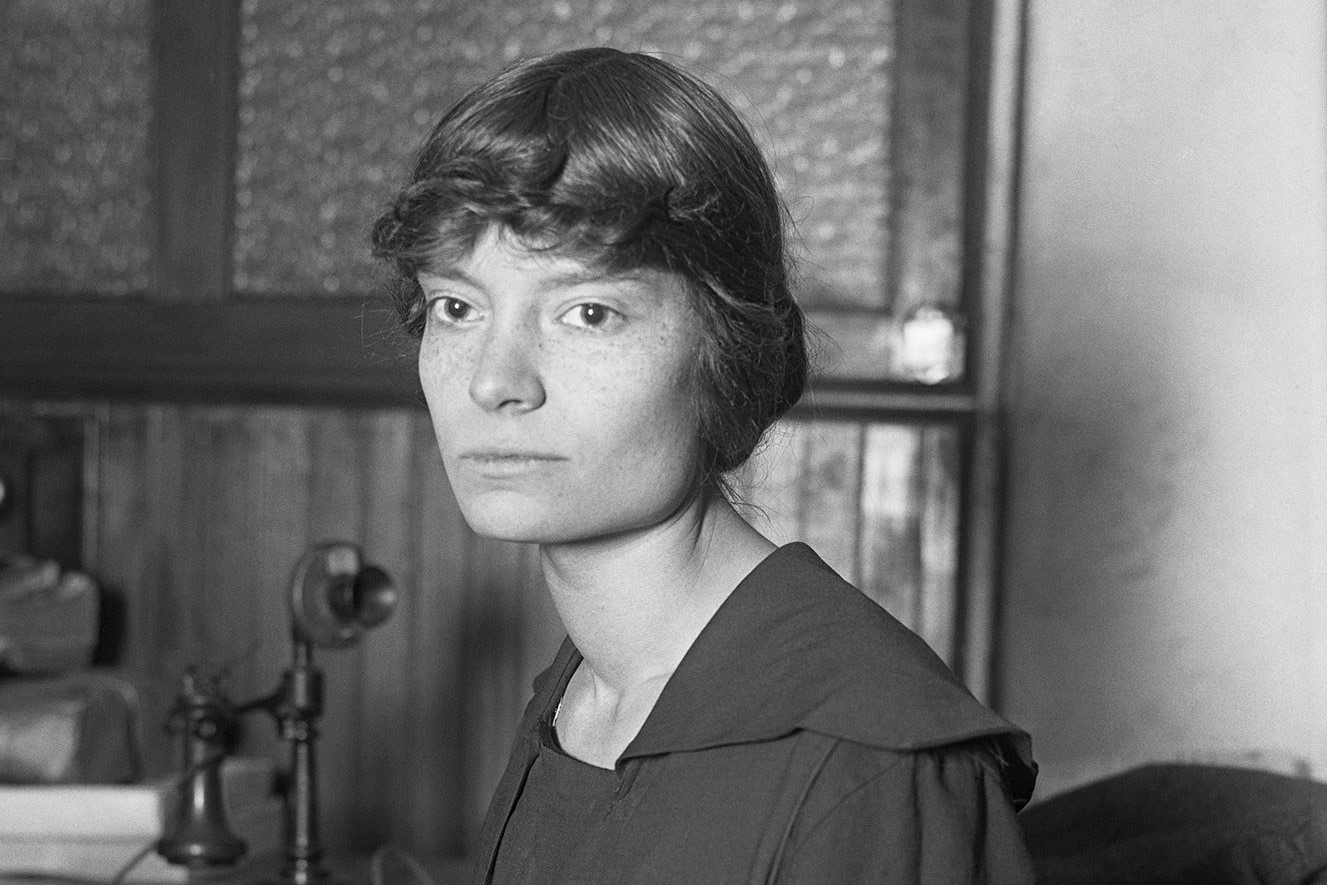Home>Theology and Spirituality>How Did The Conflict Between Church And State Affect German Politics In The 1870S?
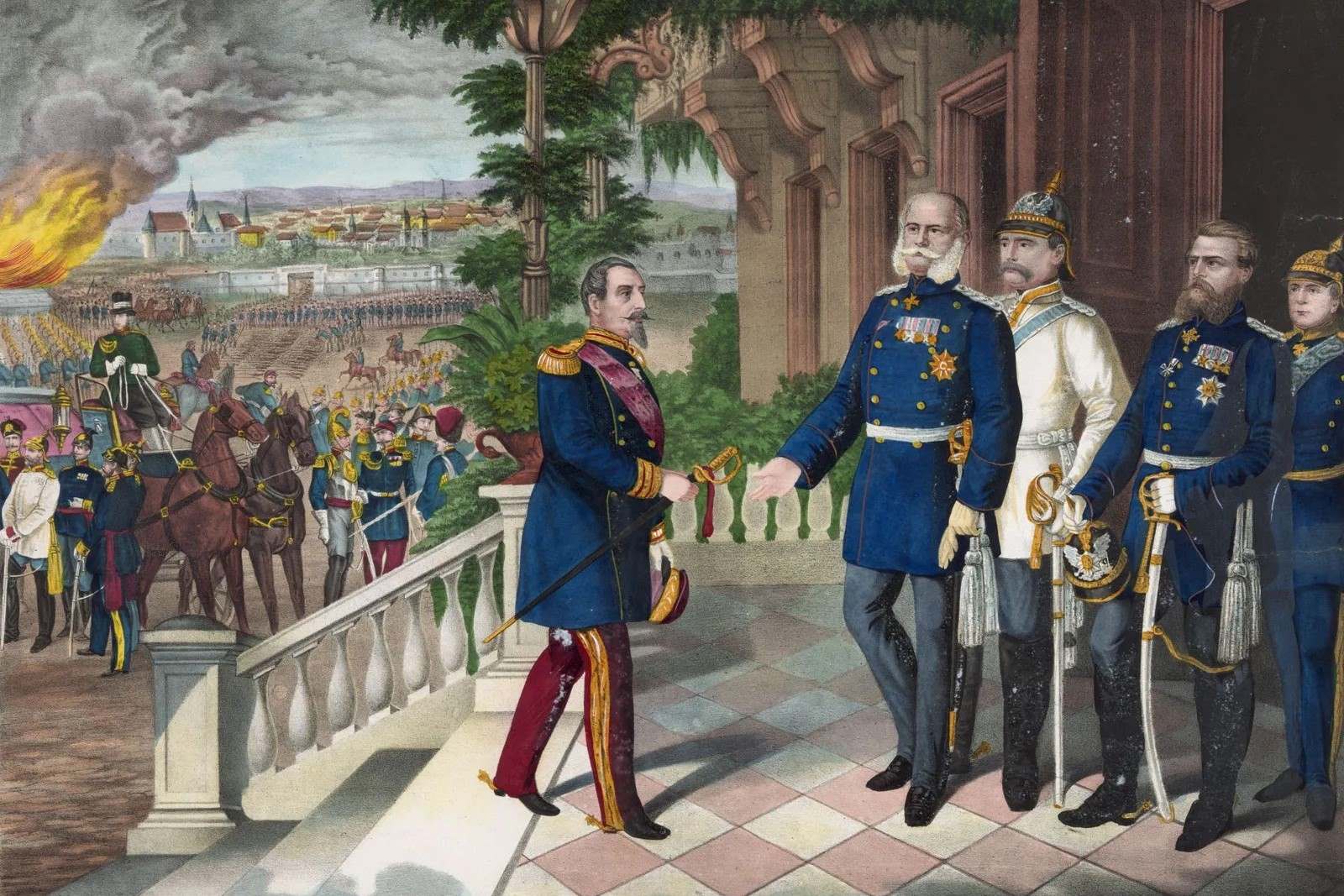

Theology and Spirituality
How Did The Conflict Between Church And State Affect German Politics In The 1870S?
Published: February 12, 2024
Peter Smith, Editorial Director at Christian.net, combines deep insights into faith, politics, and culture to lead content creation that resonates widely. Awarded for his contributions to religious discourse, he previously headed a major organization for religious communicators, enhancing dialogue on faith's societal impacts.
Explore how the conflict between church and state impacted German politics in the 1870s, delving into the intertwining of theology and spirituality in historical context.
(Many of the links in this article redirect to a specific reviewed product. Your purchase of these products through affiliate links helps to generate commission for Christian.net, at no extra cost. Learn more)
Table of Contents
Introduction
The conflict between the church and the state has been a recurring theme throughout history, often sparking significant political and social upheaval. In the 1870s, Germany found itself embroiled in a tumultuous struggle between the Catholic Church and the state, a conflict that reverberated across the political landscape and left a lasting impact on German society.
During this period, the Catholic Church wielded considerable influence in German politics, particularly in the southern regions of the country where the majority of the population adhered to the Catholic faith. The church played a pivotal role in shaping the values, beliefs, and social structures of these communities, exerting a profound influence on the daily lives of the people.
At the same time, Otto von Bismarck, the Chancellor of the German Empire, sought to consolidate the power of the newly unified state and establish a strong, centralized authority. Bismarck's vision for a unified Germany clashed with the influence of the Catholic Church, leading to a protracted and contentious struggle known as the Kulturkampf, or "culture war."
The Kulturkampf was characterized by a series of policies and measures aimed at reducing the influence of the Catholic Church and asserting the dominance of the state. Bismarck viewed the church as a potential threat to his vision of a unified, centralized state and sought to curtail its power through a combination of legislative actions and administrative measures.
The conflict between the church and the state in 1870s Germany had far-reaching implications, impacting not only the political landscape but also the fabric of society. It sparked intense debates, polarized public opinion, and fueled social divisions, creating a climate of tension and uncertainty.
As we delve into the intricate dynamics of this historical conflict, it becomes evident that the repercussions of the struggle between the church and the state extended far beyond the realm of politics, leaving an indelible mark on the collective consciousness of the German people.
The conflict between the church and the state in 1870s Germany serves as a compelling case study, shedding light on the complex interplay between religious institutions and political authority and offering valuable insights into the enduring impact of such conflicts on society at large.
The Role of the Catholic Church in German Politics
The Catholic Church held a position of significant influence in German politics during the 1870s, particularly in the southern regions of the country where the majority of the population adhered to the Catholic faith. The church played a pivotal role in shaping the values, beliefs, and social structures of these communities, exerting a profound influence on the daily lives of the people.
At the heart of the church's influence lay its extensive network of religious institutions, including schools, hospitals, and charitable organizations. These institutions not only provided essential services to the community but also served as centers for the dissemination of religious teachings and values. As a result, the Catholic Church played a central role in shaping the moral and ethical framework of German society, exerting a profound influence on the cultural and social fabric of the nation.
Moreover, the clergy wielded considerable authority and moral sway, often serving as trusted advisors and community leaders. The close relationship between the church and the people fostered a deep sense of loyalty and allegiance to the Catholic faith, further solidifying the church's influence in the political sphere.
In addition to its moral and social influence, the Catholic Church also held significant economic power, owning vast tracts of land and possessing substantial wealth. This economic clout further bolstered the church's standing in German society and enabled it to exert influence in political matters.
The church's formidable presence in German politics posed a challenge to the vision of a unified, centralized state championed by Otto von Bismarck. As Bismarck sought to consolidate the power of the newly unified German Empire, the influence of the Catholic Church emerged as a potential obstacle to his objectives, setting the stage for a protracted and contentious struggle between the church and the state.
The clash between the Catholic Church and the state in 1870s Germany underscored the intricate interplay between religious institutions and political authority, illuminating the complexities inherent in navigating the relationship between faith and governance. This historical conflict serves as a compelling testament to the enduring impact of religious institutions on the political landscape and the broader societal framework.
Bismarck's Kulturkampf
Bismarck's Kulturkampf, or "culture war," represents a pivotal chapter in the history of the conflict between the Catholic Church and the state in 1870s Germany. Otto von Bismarck, the Chancellor of the German Empire, initiated a series of policies and measures aimed at reducing the influence of the Catholic Church and asserting the dominance of the state. The Kulturkampf was characterized by a concerted effort to curtail the power of the church and solidify the authority of the state, reflecting Bismarck's vision for a unified, centralized Germany.
Central to Bismarck's strategy was the passage of a series of laws known as the "May Laws," which sought to assert state control over religious and educational institutions. These laws placed stringent regulations on the Catholic Church, including the requirement for clergy to obtain state authorization and the imposition of state oversight on religious education. Furthermore, the state aimed to assert its authority over the appointment of clergy, encroaching upon a domain traditionally governed by the church.
The implementation of the May Laws sparked widespread resistance and defiance from the Catholic Church and its supporters, leading to a climate of intense polarization and social upheaval. The conflict escalated as the church vehemently opposed the encroachment of state authority into religious matters, viewing it as a direct affront to its autonomy and spiritual jurisdiction.
In response to the resistance, Bismarck intensified the pressure on the Catholic Church, resorting to punitive measures such as the expulsion of the Jesuits and the dissolution of Catholic orders. These actions further exacerbated the tensions between the church and the state, deepening the rift and fueling public discontent.
The Kulturkampf represented a complex and tumultuous period in German history, characterized by fierce ideological clashes and social divisions. The conflict underscored the profound challenges inherent in reconciling the competing interests of religious institutions and state authority, shedding light on the intricate dynamics of power and influence in the political and social spheres.
Ultimately, the Kulturkampf did not achieve its intended objectives, and Bismarck gradually shifted his focus away from the conflict, recognizing the futility of perpetuating a prolonged struggle with the Catholic Church. The legacy of the Kulturkampf, however, endured as a testament to the enduring complexities of the relationship between the church and the state, leaving an indelible mark on the historical narrative of 1870s Germany.
The Impact of the Conflict on German Society
The conflict between the Catholic Church and the state in 1870s Germany had profound and far-reaching implications for the fabric of society. The intense ideological struggle and social upheaval that characterized the Kulturkampf left an indelible mark on the collective consciousness of the German people, shaping their perspectives and experiences in significant ways.
The conflict engendered a climate of deep polarization and social division, pitting supporters of the Catholic Church against advocates of state authority. This ideological rift permeated various facets of society, fueling intense debates and exacerbating existing social tensions. The repercussions of the conflict reverberated through communities, workplaces, and even within families, as individuals grappled with divergent loyalties and allegiances.
Moreover, the conflict had a profound impact on the educational landscape, as the state sought to assert control over religious education and curricular content. The imposition of the May Laws and the subsequent resistance from the Catholic Church led to disruptions in the educational system, creating uncertainty and discord within schools and academic institutions. The struggle over educational autonomy and the dissemination of religious teachings further deepened the fissures within German society, leaving a lasting imprint on the educational sphere.
Furthermore, the conflict permeated the realm of public discourse and cultural expression, shaping the narratives and discourses that permeated the public sphere. The clash between the church and the state became a central theme in public debates, influencing the perspectives and attitudes of the populace. The conflict engendered a climate of heightened political awareness and civic engagement, as individuals grappled with the implications of the struggle for their own lives and communities.
The impact of the conflict on German society extended beyond the immediate political and social ramifications, leaving a lasting legacy that reverberated through subsequent generations. The Kulturkampf served as a poignant reminder of the enduring complexities inherent in navigating the relationship between religious institutions and state authority, offering valuable insights into the intricate dynamics of power and influence in the societal framework.
The conflict between the Catholic Church and the state in 1870s Germany stands as a testament to the enduring impact of historical struggles on the collective consciousness of society, underscoring the profound implications of ideological clashes on the fabric of communities and the broader societal landscape.
The Aftermath of the Conflict
The aftermath of the conflict between the Catholic Church and the state in 1870s Germany was marked by a complex tapestry of social, political, and cultural repercussions that reverberated through the fabric of society. As the dust settled on the tumultuous struggle of the Kulturkampf, the legacy of the conflict continued to cast a profound shadow over the collective consciousness of the German people, shaping their perspectives and experiences in enduring ways.
One of the enduring legacies of the conflict was the deepening of social divisions and ideological rifts within German society. The polarization engendered by the clash between the church and the state persisted in the aftermath of the Kulturkampf, leaving a palpable imprint on the social landscape. The lingering tensions and divergent allegiances continued to permeate communities and interpersonal relationships, underscoring the enduring impact of the conflict on the social cohesion of the nation.
Furthermore, the aftermath of the conflict witnessed a reconfiguration of power dynamics within the political sphere. While the Kulturkampf did not achieve its intended objectives of subduing the influence of the Catholic Church, it nonetheless catalyzed a reevaluation of the relationship between religious institutions and state authority. The struggle between the church and the state prompted a nuanced reassessment of the boundaries of power and influence, laying the groundwork for a recalibration of the dynamics that governed the intersection of faith and governance.
In addition, the aftermath of the conflict precipitated a reexamination of the role of religious institutions in the public sphere. The resistance mounted by the Catholic Church during the Kulturkampf underscored the enduring significance of religious autonomy and spiritual jurisdiction, prompting a broader societal dialogue on the place of faith-based organizations within the framework of governance. The conflict engendered a heightened awareness of the complexities inherent in navigating the relationship between religious institutions and state authority, fostering a climate of introspection and deliberation.
Moreover, the aftermath of the conflict served as a catalyst for a broader societal reckoning with the implications of ideological clashes and power struggles. The Kulturkampf prompted a period of introspection and reflection, as individuals and communities grappled with the enduring ramifications of the conflict on their lives and collective identity. The struggle between the church and the state became a focal point for broader conversations on the complexities of power, influence, and the enduring legacy of historical conflicts.
In essence, the aftermath of the conflict between the Catholic Church and the state in 1870s Germany ushered in a period of introspection, reassessment, and recalibration. The enduring impact of the Kulturkampf continued to resonate through the societal framework, prompting a nuanced reevaluation of the dynamics that governed the relationship between religious institutions and state authority. The conflict left an indelible mark on the historical narrative of 1870s Germany, serving as a poignant reminder of the enduring complexities inherent in navigating the intersection of faith and governance.
Conclusion
The conflict between the Catholic Church and the state in 1870s Germany stands as a poignant testament to the enduring complexities inherent in navigating the relationship between religious institutions and political authority. The tumultuous struggle of the Kulturkampf, characterized by fierce ideological clashes and social divisions, left an indelible mark on the collective consciousness of the German people, shaping their perspectives and experiences in profound ways.
The conflict underscored the profound challenges inherent in reconciling the competing interests of religious autonomy and state authority, shedding light on the intricate dynamics of power and influence in the political and social spheres. The clash between the church and the state permeated various facets of society, engendering a climate of deep polarization and ideological rifts that reverberated through communities, workplaces, and public discourse.
Moreover, the conflict prompted a nuanced reassessment of the boundaries of power and influence, catalyzing a broader societal dialogue on the place of faith-based organizations within the framework of governance. The resistance mounted by the Catholic Church during the Kulturkampf underscored the enduring significance of religious autonomy and spiritual jurisdiction, fostering a heightened awareness of the complexities inherent in navigating the relationship between religious institutions and state authority.
The aftermath of the conflict precipitated a period of introspection, reassessment, and recalibration, prompting individuals and communities to grapple with the enduring ramifications of the conflict on their lives and collective identity. The conflict left an indelible mark on the historical narrative of 1870s Germany, serving as a poignant reminder of the enduring complexities inherent in navigating the intersection of faith and governance.
In essence, the conflict between the Catholic Church and the state in 1870s Germany serves as a compelling case study, shedding light on the enduring impact of historical struggles on the collective consciousness of society and offering valuable insights into the intricate dynamics of power and influence in the societal framework. The conflict stands as a testament to the enduring complexities of the relationship between religious institutions and state authority, leaving an indelible mark on the historical narrative of 1870s Germany.

